BOOKS — LANGUAGE — and the BARD
My book club just read "The Library Book" by Susan Orlean (2018). To a person the group thought the book mediocre at best but it has some redeeming qualities for the book obsessed. (I liked it a bit better than the rest of the group.) It's about the fire that destroyed the Central Public Library in Los Angeles on April 29, 1986. It also includes lots of interesting history of libraries in the US. The fire occurred on the same day as the nuclear accident at Chernobyl so it got minimal press coverage.
After an absence of three years, I have resuscitated this thread @jamie
Top of my summer to-read list….
https://www.nationalreview.com/2022/06/a-love-letter-to-shakespeare/
I was about to Like your original post and then discovered I had Liked it 3 years ago! I am in some kind of time warp or is that just a bookish fantasy?
No, you are fine, Jamie and I are also fine. Cannot believe it’s been three years!
Probably the best book I read in the last year (and I read many books) is The Lincoln Highway by Amor Towles. I didn't expect it to be so great but he truly knows how to write.The characters are wonderful. It is fiction but I was surprised to learn that there really is a Lincoln Highway crossing the USA. A long book but you will want to finish it!
A book I read which tops my “best book I’ve read” list is George Saunders’ “Lincoln in the Bardo”. (Coincidence about the name Lincoln appearing in both our noteworthy books.) I will ever again walk past or visit a cemetery again without thinking about this book.
Your suggestion has been on my to-read Kindle list for awhile — and it is now next in line! Thanks.
George Saunders is a great author. I was zooming my son in H K recently and his book club was reading another Saunders book.
The dreadful murders of four college students in Idaho brought this unsolved 1966 Maplewood murder to mind…
What it current acceptance of mental illness on our streets, in our homes, and within our families, is not the answer? What if self- medication is a delusion invented by the uninfected to ward off guilt?
Modern society could not accept the madhouses of the past when the solution of pills and potions represented freedom for those afflicted. Tent cities and the freedom for the sick to live unsupervised appear to be the outcome. There has to be a better way to care for those we know and love.
https://www.thefp.com/p/my-friends-descent-into-madness-and
Not exactly the book to give for Mother or Father’s day gifts, perhaps. But a book to read for self education and awareness.
When medicines became available and the huge terrible "asylums" were closed, it's my understanding the idea was that help/support/treatment would be available at community facilities/clinics. However, Reaganism (among other afflictions) intervened, and little or no funding was was provided. Not to mention NIMBY for clinics and supervised housing. It's been a colossal snafu and social failing, recently mitigated somewhat by the parity requirements of ACA/Obamacare and by increasing willingness to discuss publicly. You're right, there's a looonnnng way to go.
Salt Lake City has had success (and saved money ultimately) with a "housing first" approach that gives troubled people the decency of a place to stay and easier on-site access social/medical services, and i think our current town Milwaukee, and others?, is following suit.
Certainly, it's a conundrum walking the line between too much impingement on peoples' freedom, and reasonable care for their welfare.
I have a brother with schizophrenia. mjc's summary is correct. Once we've rounded up and eliminated all the trans people, maybe we can tackle a genuine problem like this one.
(One correction: The ACA isn't helping in states that refuse to expand Medicaid.)
mjc said:
When medicines became available and the huge terrible "asylums" were closed, it's my understanding the idea was that help/support/treatment would be available at community facilities/clinics. However, Reaganism (among other afflictions) intervened, and little or no funding was was provided. Not to mention NIMBY for clinics and supervised housing. It's been a colossal snafu and social failing, recently mitigated somewhat by the parity requirements of ACA/Obamacare and by increasing willingness to discuss publicly. You're right, there's a looonnnng way to go.
Certainly, it's a conundrum walking the line between too much impingement on peoples' freedom, and reasonable care for their welfare.
For an explanation or a solution to human behavior, look no further than The Bard. Some folks on these threads will not read anything from the source of this link, The National Review, but that is their way of coping with filtered knowledge, I would suppose.
The rest of us will wallow in the words of Mr. Shakespeare, happily, and digest them and analyze them with pleasure!
https://www.nationalreview.com/magazine/2023/05/01/how-shakespeare-changed-everything/
Wonderful story about books - and survival….
https://www.nytimes.com/2023/10/06/arts/paperback-world-war-ii-grolier-club-nyc.html
Just finished JM Coetzee's most recent, The Pole and highly recommend it.
Currently reading Beware of Pity by the great Stefan Zweig. I think it's Zweig's only long novel.
Then onto Ms Ice Sandwiches, a novella by Mieko Kawami.
In the non-fiction category most recently read The Return by Libyan author Hisham Matar, which won a Pulitzer.
Sponsored Business
Promote your business here - Businesses get highlighted throughout the site and you can add a deal.















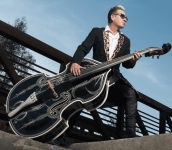

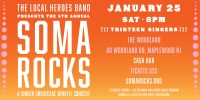
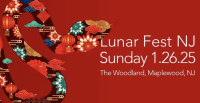
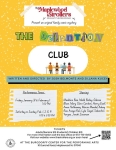
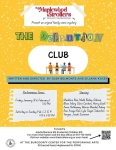


TWELVE RULES FOR THE BOOKISH LIFE
(Of course, the bookish life needs no rules.)
by Doug Sikkema
March 1 st 2019
Appears in Spring 2019
With gratitude for half a decade of service alongside the Commentteam, and in particular for the mentorship and friendship of Brian Dijkema and Jamie Smith, two of the most bookish men I’ve ever had the pleasure to know. May your tribes increase!